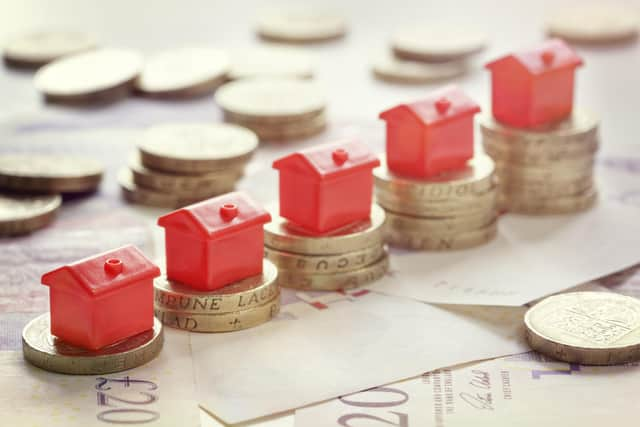Land and Buildings Transaction Tax burden falling on relatively few shoulders - David Alexander
Scottish Government revenues from LBTT in June 2023 were £61.7m from just 8,780 sales which equates to an average cost of £7,027 per transaction.
In June 2021 the Government collected £52.1m from 11,120 transactions which equates to £4,685 per property. This means that revenue from property sales has risen by £2,342 per transaction which is an increase of 49.9 per cent in just 24 months.
Advertisement
Hide AdAdvertisement
Hide AdPart of this is undoubtedly down to the buoyancy of the Scottish property market which has continued to increase despite the multiple interest rate rises and the many predictions of a downturn in the housing sector.


Part of it will also be due to the enormous price rises in the detached and semi-detached property market which has seen near double digit growth over the last 12 months alone and these are always the most expensive homes on the market so consequently pay the most tax.
But increasingly the bulk of LBTT is being borne by a relatively small number of homebuyers. Indeed, the figures are quite alarming in showing just how few people are contributing so much to the monthly and annual revenue the Scottish Government gains from house buying.
In June of this year just 1,600 buyers contributed £32.7m in LBTT (without including those who also paid the Additional Dwelling Supplement (ADS) on second homes and properties purchased to let out) which represents 81.2 per cent of all residential property tax raised that month.
In the last year a total of £650.3m was raised between July 2022 and June 2023 which was a 10.5 per cent increase on the same period the year before. Stripping out ADS gives a figure of £463.2m collected from LBTT of which 83.0 per cent (£384.1m) was from people buying a home worth more than £325,001.


June also recorded the highest ever figure of £21.8m for ADS collected from the purchase of second homes and those buying properties for the private rented sector.
With property tax rates being so much higher than the rest of the UK there is a disproportionate level of charges being made against first time buyers, those buying properties prices worth more than £325,001, and those purchasing a second home or a property for letting.
Many may say well this is simply placing the biggest burden on those with the broadest shoulders but given that first time buyers are impacted at a much lower level in Scotland than in England and that most people would not regard someone buying a £325,001 home as being rich the pendulum has swung too far and too punitively upon a very small number of buyers often with relatively modest incomes.
Advertisement
Hide AdAdvertisement
Hide AdFor those buying a second home or investing in the private rented sector then there is an additional dwelling supplement (ADS) on top of the LBTT of six per cent which means that for a property valued at more than £750,000 which is not your principal home the charge will be 18 per cent of anything above three quarters of a million pounds.
Being overly reliant on a very small number of people for such a large tax take and depending on them to continue to buy property in Scotland when the costs are now so much more than the rest of the UK is a risky long-term strategy. We need to ensure that Scotland continues to have a strong and lively housing market and part of this must be fairer taxation on property. There is a very real risk that our much higher taxation on homebuying makes it more difficult to attract wealth creators and high earners in the coming years who are essential in creating a dynamic, growing Scottish economy.
David Alexander is CEO of DJ Alexander Ltd
Comments
Want to join the conversation? Please or to comment on this article.